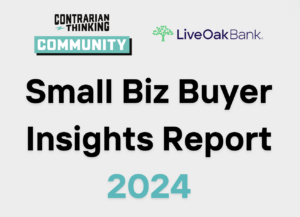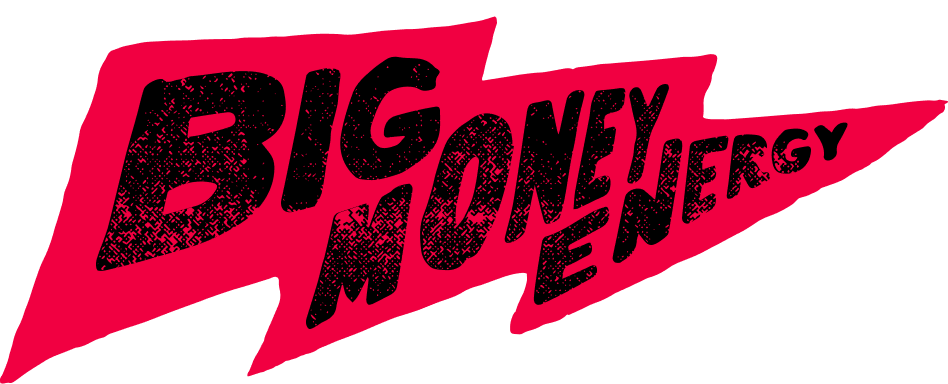
When people say that the solar power business is booming, they may not know how big it is.
Solar power grew by 21% worldwide between 2021 and 2022. Its estimated market value was $189 billion in 2022, with a forecast of $607.8 billion by 2030.
A few things drive that trend:
- Increased interest in sustainability from consumers and governments.
- A desire for more consistent and reliable service, especially in light of natural disasters that cause power shutdowns for days or weeks.
- Rising electric costs (U.S. electricity bills spiked by 5% between 2021 and 2022, and consumers worry more hikes are on the way).
You can capitalize on all these trends and build a bright business future by starting a solar panel installation business.
There’s just one catch.
Other players have already figured that solar’s a business with huge demand. It’s not the easiest business to break into. That’s why we recommend buying an established solar business over starting one.
Here’s what you need to know about what it takes to start a solar panel business and why choosing to buy one is a better option.
Starting or Buying Your Solar Panel Business: Which is Better?

You can try to start your own solar panel business now. But you need to prepare for big challenges in getting traction in the market.
4 main issues stand in the way of new solar panel companies:
- High competition: The potential to make money is not a secret, and a lot of companies have stepped into this space to meet the demand.
- Expensive startup costs: Solar equipment and training are expensive. On the low end, you’ll spend at least $8,000 for startup costs. You’ll need to budget for equipment, a location, and a crew.
- An evolving market: Solar tech gets better every day, but that means you have to keep up with the latest technology to give customers the best service possible. You also need to keep up with legal and regulatory requirements.
- High skill floors: You need people who know what they are doing and have the certs to back it up. But this is still a new technology that requires special training.
Homeowners pay anything from $4,500 to $36,000 for solar panel installation.
That means big bucks for you but also a big investment for them.
Since solar’s an investment, most people shop around for quotes before pulling the trigger. They do their own research into different solar company’s success stories and reviews from past customers.
A new business owner can’t leverage past reviews and case studies. Someone has to take a chance on your credibility to give you your first gig.
But what if you could enter the industry by turning someone’s existing name recognition, crew, equipment, and operations in your favor?
You get access to all of that and more when you buy an established solar business.
You’ll enter the market with an organization full of people who already figured out how to deal with these challenges.
Not sure how to break in? Look at places where business owners who want to exit list their businesses for sale, like:
You can also find off-market deals on BizScout. (Full disclosure: this is a company we started to help people acquire great companies.)
And buying one of these businesses comes with a unique financing opportunity.
You can use seller financing to structure your own deal. Most people who buy businesses end up with better terms than they would on a loan or rallying investors. Plus, you start off with momentum.
But if you’re still serious about starting your own solar installation business, read on. The steps below will guide you through the blueprint.
1. Gauge Your Market

Over half of Americans want to use solar energy in their homes.
But how does that demand translate into your service area?
Some markets may already have multiple solar companies competing for demand. Others may be wide open.
Do your research first so you can learn about current demand and see where your competitors excel or fall short.
Here’s what to look for in this phase:
- How many companies provide residential and commercial services in your area?
- How many reviews do those companies have, and what do customers say about each company?
- When do those reviews show they completed work? Does it look like the competitors see steady demand?
- What are the local regulations and preferences in your area? Is there a preference for roof vs. ground installations?
- Where do you see gaps or unique selling points you can use to differentiate yourself from the competition?
Speak to people who have solar panels on their homes or businesses. Ask questions like:
- Who did they hire?
- Why did they choose that solar company over another?
- How much did it cost to get solar panels installed?
- What additional services did the solar company pitch?
- What was the overall process of working with the company like?
Use what you learn to craft your own goals.
For example, maybe current companies don’t offer warranties or upgrades as new tech comes out. You’ll earn more business by figuring out what your competitors overlook and capturing that demand.
Getting to the bottom of market research can be difficult. It can be hard to tell if there’s enough demand to support a new business since there’s so much competition.
Buying an established business cuts out a lot of this guesswork.
A business that’s already built up a steady cashflow will have a handle on the demand in the market. They’ll already have a unique selling point and an existing customer base.
You’ll be able to look at their market research before you buy to see what adjustments you can make to the business to be a better fit for potential customers
2. Create Your Solar Panel Business Plan
The next step after completing your market research is to write up your business plan.
Your plan will cover the most important lessons learned from research. You’ll take those details and translate them into a strategy for success.
Your business plan should include:
- Your short-term and long-term objectives
- A detailed explanation of your services and target market, including whether you’ll focus on residential vs. commercial and off-grid vs. on-grid installs.
- Your plan for required licensing and business registration
- Your financial plan
- Your marketing strategy
Writing up a business plan takes a lot of research and strategic thinking. But you’ll need a solid one if you want to get a loan or investors for your new venture.
When you buy an existing business, the business plan is already in place. You get the luxury of building on what they started while looking for ways to improve existing operations.
3. Register Your Business and Research Regulations
Just like any other business, take yourself seriously and register your company name with the secretary of state. During this process, you need to register as a sole proprietorship, partnership, limited liability company, or corporation.
With a newly registered business, you can complete other important steps like getting liability insurance and opening a business bank account.
What sets solar businesses apart from others is that you must research special regulations, insurance, and tax credits.
Some states require solar contractors to have specialized certifications. Cities and counties may also put additional restrictions on who can install panels.
For example, if you install ground and rooftop panels, you might need a construction license, a roofing contractor license, and an electrician license before entering the industry, depending on where you work.
Each state may also require specific insurance coverage for solar panel installers. As a general guideline, you’ll need:
- General liability coverage
- Car insurance for any company vehicles
- Workers’ compensation insurance if you hire non-contractors
Finally, each state may have its own solar panel installation tax credit programs and rules.
Rebates are an important selling point for many of your customers. As an installer, you must understand these at the federal and state levels to accurately quote customers and to help them apply for these credits.
When you buy a business, you also buy their knowledge of rules and regulations. You’ll start off with a business that already has its licenses and certs. And you’ll be able to quote customers on tax credits from day 1.
4. Secure Your Startup Finances
Your startup finances depend on the business model you choose. You’ll find 3 main options to choose from:
- Starting from scratch, which can cost $8,000-15,000
- Buying into a franchise model, which can come with startup fees of $100,000 or more
- Buying someone else’s existing solar installation business
Draft up a budget including items like:
- Equipment costs
- Licensing and certification fees
- Insurance expenses
- Office space rent or warehouse costs
- Initial marketing/branding expenses (think website, business cards, etc.)
Once you know what you need, it’s time to explore funding options. Here’s a breakdown of the most common options:
- Traditional bank loans
- Business loans
- Solar-specific grants and subsidies
- Crowdfunding or angel investors
Bank and business loans may offer the upfront money needed to get into this industry, but come with a lot of red tape and annoying paperwork. Plus, you can’t really negotiate better terms, and you’ll have to think about interest-bearing debt.
Look into government grants for tech and solar companies since this is free money. But you’ll face stiff competition for grants and have to deal with a long application turnaround time.
It may be hard to raise enough money through crowdfunding, but it could give you your start for your business. Investors may round out your quest for startup money, but many investors will expect a permanent share in your business.
If you find someone else who wants to sell their current solar business, you could use the above options.

But there’s an even better one: seller financing.
Under a seller-financed deal, you propose a down payment and payback terms. Negotiate with the seller until you get to a point where you’re both happy with the deal. You’re much more likely to get flexible terms than you would with business loans.
5. Set Up Operations and Get Your Equipment
Solar businesses need to keep a lot of supplies and equipment on hand. You’re going to need a physical location to store your stuff and run your operations.
You need two things:
- Proximity to potential customers
- Accessibility for logistics and your supply chain.
Here’s what that means:
- Do you have vendors and suppliers in the region?
- If so, where will they deliver and store items before they get installed on a customer’s property?
- Are there easy throughways in and out of that location for big trucks?
Beyond your office space, you’ll need equipment such as:
- Solar panel hangers
- Photovoltaic (PV) tester
- Electric drills
- Estimation software
- Fall protection gear
- Cables
- Connector tools
Don’t forget to reach out to vendors and suppliers. Your ability to properly estimate and obtain materials is crucial for completing jobs. Getting a good deal makes it even sweeter if you can forge a good relationship.
If you find someone else selling a solar business, you can acquire these tools in the transaction. You’ll also benefit from any existing relationships they built with suppliers.
6. Hire and Train Your Team
Unlike other business models like running a laundromat or pool cleaning, you can’t really do this one alone.
Solar installation requires at least a few helping hands from people who know what they’re doing. Here are a few people you’ll need to hire:
- Technicians
- Salespeople
- Office staff for operations and logistics
You might also consider hiring a financing specialist or credit expert. That way, you can offer payment plans to your customers.
And, if you can afford the salary, hiring a master electrician will go a long way for your business.
Look for employees who already work in the electrical or construction industry.
The best employees are people who are already solar-certified. If they aren’t certified, you need a plan to help them obtain necessary licenses and certs.
Here are the big certifications your techs will need from the North American Board of Certified Energy Practitioners:
- PV Installation Professional Board Certification: the gold standard in the industry, which requires knowledge of operations, installation, design, and maintenance. Field experience required. OSHA outreach training, 50+ hours of solar courses, and a written exam apply.
- PV Installer Specialist Board Certification: This one is mostly for solar installation skills. Field experience is a must in addition to 24 hours of solar training, OSHA courses, and an exam.
- PV Technical Sales Board Certification: For sales experts, performance analysts, site assessors, and application engineers. This focuses mostly on how to analyze solar sites and estimate projects but does not require previous solar installation experience. Solar training, OSHA construction industry training, and solar selling experience are requirements here.
You’ll also need to provide ongoing training and educational opportunities for all employees too.
Finding, hiring, and training a qualified crew is a challenge for new business owners. You can bypass a lot of the stress by buying a business that already has experienced employees and processes for training new ones.
7. Take Your Services to Market
To bring your business to potential clients, develop a plan for online and offline marketing.
A professional website is not optional. Customers today look online first and expect to find details about you, your services, and your team online.
Your site should:
- Explain which areas you serve
- Include clear calls to action
- Offer multiple ways for people to contact you, such as through forms, email, or phone

Claim social media accounts and a Google Business profile, too.
When you create educational content about your industry on social media, you show people the value of what you do and pique their interest in your services.
Just check out how TikTok user Solargoat uses his platform to show off his skills and genuine interest in solar panel installation:
@solargoat What do you think about these panels? Love the look of the bifacials in general but these were black on black resi panels thats were too clean to pass up. 400 Watts 41×74 inches and about a 10% posible boost off the back.
♬ original sound – SOLARGOAT
Online reviews are the lifeblood of modern service businesses. When people research services, one of the first places they check are Google Business reviews.
You’ll want to claim your profile so that you can respond to all reviews (both positive and negative). Doing this will show people in the research phase that you’re active and care about customers’ feelings.
Networking and partnerships also contribute to ongoing solar business success.
It keeps you on the cutting edge of an ever-evolving industry. You can expand your lead sources by collaborating with real estate developers or home improvement companies.
When you buy a solar panel business from someone else, you get to cash in on their marketing efforts right away. You won’t have to wait for reviews on your Google Business profile, for your site to start ranking on search engines, or for people to follow you on social media.
You’ll get access to an audience of potential customers who already know that the business exists. Your job becomes improving your business’s marketing efforts instead of starting them.
Growing and Expanding Your Business
Keep your company competitive by:
- Investing in ongoing training
- Adapting as needed, such as with new software or related services/repairs
- Renewing certifications and skills
And keep an eye out for related services that you can bolt onto the business. With related services, you earn more per customer by addressing multiple needs at once.
Just take a look at how Brian and Mike added pool cleaning to an existing solar panel business:
Expanding into pool services may make more sense for solar businesses than you’d think at first glance.
Pool pumps are the biggest motor in most people’s homes. They’re also the second-largest source of energy drain.
An experienced solar technician can explain to pool owners not only how they can cut the costs of powering that big ol’ pump but also how a more efficient pump can make the customer’s life better.
Let’s Make Sustainable Sexy: Start Your Solar Business
It’s only getting hotter on Earth, so why not harness the power of the sun for cleaner energy?
Solar energy is complicated and expensive, but it’s gotten more affordable in recent years as more tech hits the market and as the government continues to incentivize it.
With the right crew, vendor connections, and customer service, you can make a name for yourself in a high-demand business.
If you find someone else who did the hard work of getting the company off the ground, you can step in to optimize the business.
Customers get sustainable energy to safeguard against skyrocketing electric costs.
Innovative companies making solar equipment get rewarded for solid research and design.
The government’s happy as more people invest in clean energy alternatives.
You make money by providing a needed service and education to customers.
Everyone wins.





